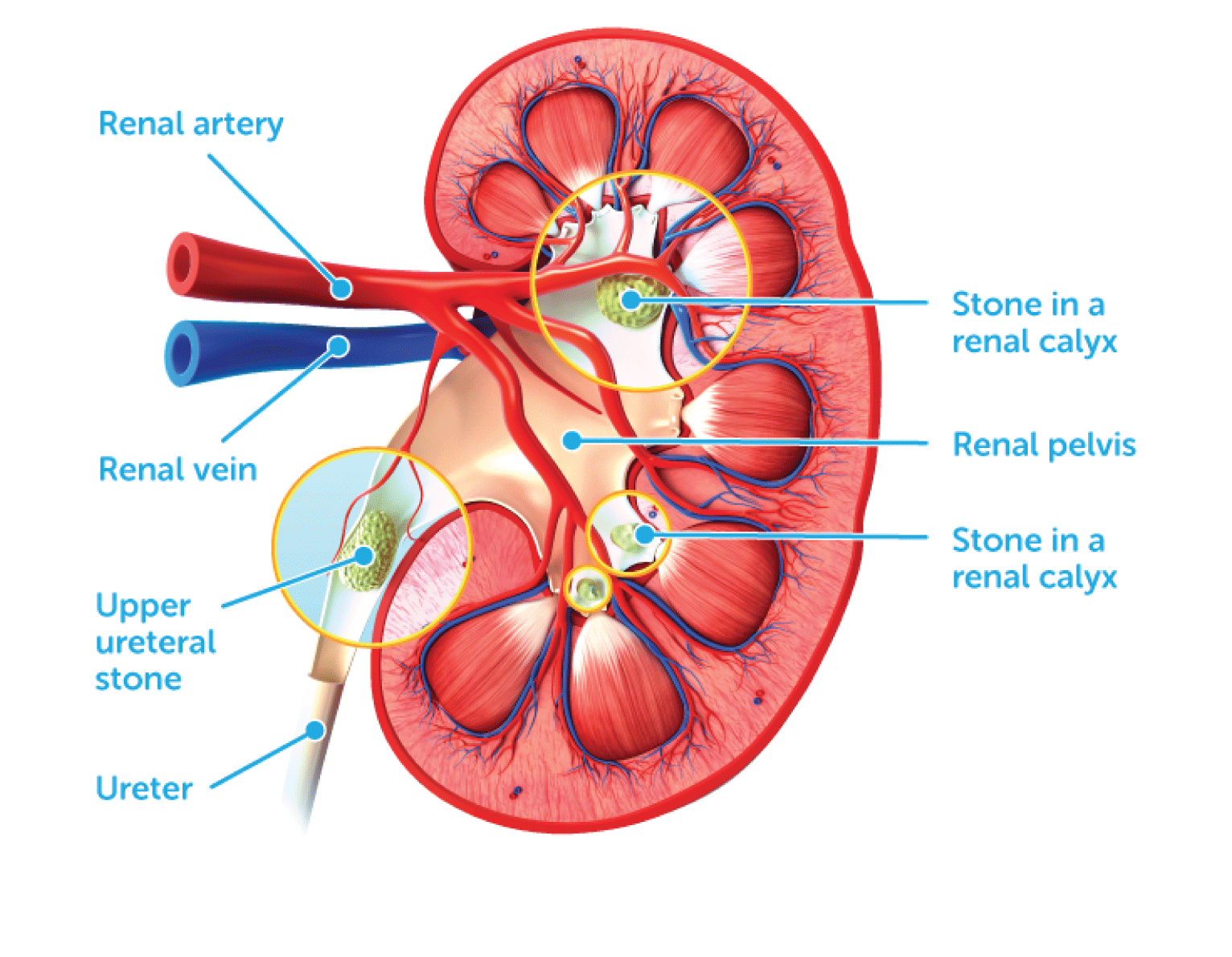Kidney Stones
What are kidney stones?
Kidney stones are a solid mass of tiny crystals. These crystals form when there is a decrease in urine volume, making the urine more concentrated, or when the urine contains too much of certain substances. These substances can create small crystals which adhere to each other and form kidney stones.
Kidney stones are common. Many are formed and leave the body by passage in the urine stream without causing symptoms. Symptoms include flank pain (often severe), blood in the urine (haematuria), nausea and vomiting, persistent urge to urinate and increased urinary frequency. If an infection is present, a patient may have fever and chills. Certain medical conditions such as gout and some medications or supplements can increase the risk of kidney stone formation.

Different types of kidney stones
Calcium stones: These are by far the most common and are usually in the form of calcium oxalate. Oxalate is a natural substance found in some fruits, vegetables, nuts and chocolate. The liver also produces oxalate. Dietary factors, intestinal bypass surgery and several metabolic disorders can lead to increased calcium oxalate levels in the urine. Calcium stones may also occur in the form of calcium phosphate.
Struvite stones: These form in response to an infection, ie a urinary tract infection. These can be rapidly forming stones, growing to large sizes with little warning and few symptoms.
Uric acid stones: These form in response to dehydration, a high protein diet, or in patients suffering from gout. There may also be a genetic predisposition to forming uric acid stones.
Cystine stones: These are caused by a hereditary disorder that causes the kidney to excrete excessive amounts of certain amino acids (cystinuria).
Other stones: It is possible for other types of kidney stones to form. These are however very rare.


